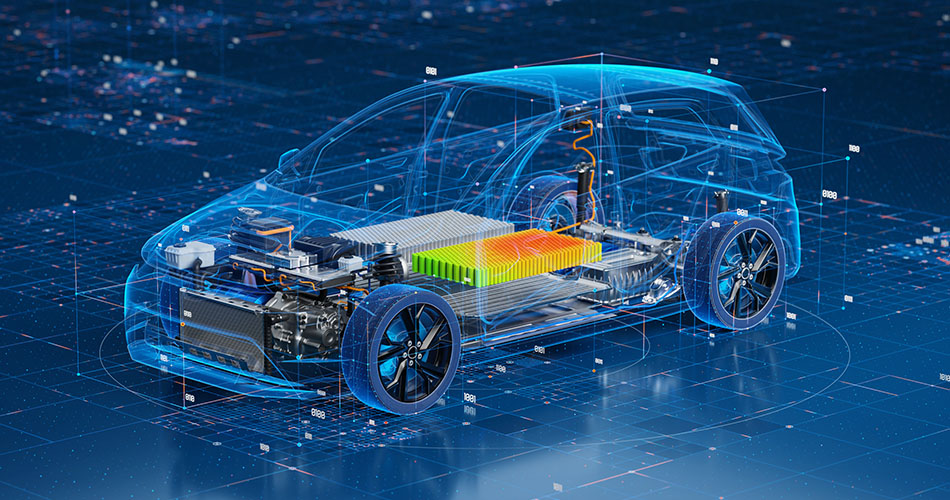Results from a recent survey commissioned by Altair have shown a high adoption of digital twin technology in the automotive industry and its expected growth as a means of achieving sustainability objectives.
More than 2,000 professionals from 10 countries across various industries took part in the study, which investigates the use of digital twin technology – namely its benefits, its use cases and its role in sustainability initiatives.
“Between consumer demand, government expectations and global emissions targets, the race is on for auto makers to keep EV production on track,” said Dr Royston Jones, senior vice president of automotive at Altair. “This report’s findings show the importance of digital twin technology in achieving those goals. While many have already adopted this technology in their processes, there is still tremendous room for education on the benefits that will lead to a rapid expansion of its use across the industry and beyond.”
Data collated through the survey suggests that among all 11 industries included, the automotive industry is the second leading adopter of digital twin technology behind the heavy equipment sector. Yet while 76% of automotive respondents said their companies have already adopted digital twin technology, users appear to be at the early stages of adoption and are curious about its benefits and use cases. Just 35% of respondents consider themselves to be ‘highly knowledgeable about digital twin solutions’, the second lowest percentage out of all industries surveyed.
Crucially, nearly all (92%) automotive respondents who report using digital twin technology said it has helped them create more sustainable products and processes – and automotive was the most likely sector (63%) to be using digital twin technologies to reach sustainability objectives through a reduction in physical prototypes.
Key findings from the survey:
- Cost reduction and better products: Nearly all respondents (97%) said digital twin solutions better inform the development of new products.
- Importantly, 70% of those using digital twin solutions reported it has significantly reduced maintenance and warranty costs;
- The automotive industry was the most likely to predict that digital twin solutions will improve the quality of products produced in the future (50%);
- 38% of automotive respondents said they believe digital twin technology will make physical prototyping obsolete within the next four years or sooner.
- Sustainable impact: An impressive 92% of automotive respondents said that digital twin technology has helped their organization create more sustainable products and processes.
- 63% are using digital twin solutions to reach their sustainability objectives, and find it makes their products and services easier to refurbish and/or reuse (51%);
- 78% of respondents said the technology helps their organization by generating energy savings and/or enabling the efficient use of resources.
- Desire for more education and adoption: While the data shows that digital twin technology is widely adopted within the automotive industry, there is also room for growth and a desire for more education.
- Of respondents whose organizations don’t currently use digital twin solutions, 22% expect they will do so in the next six months or less and 33% expect it in a year or more;
- 92% of non-senior leadership employees said they thought their leadership would be more likely to invest in digital twin technology if they better understood its benefits.
For more on vehicle development, click here.


